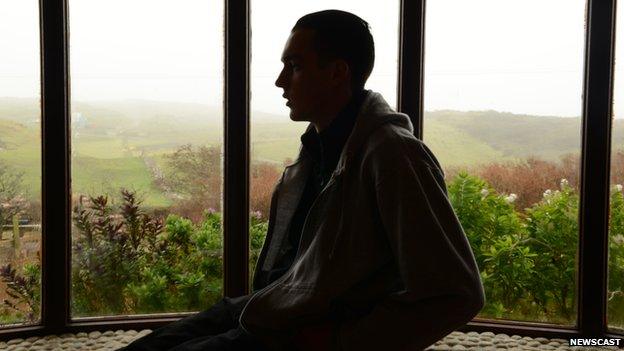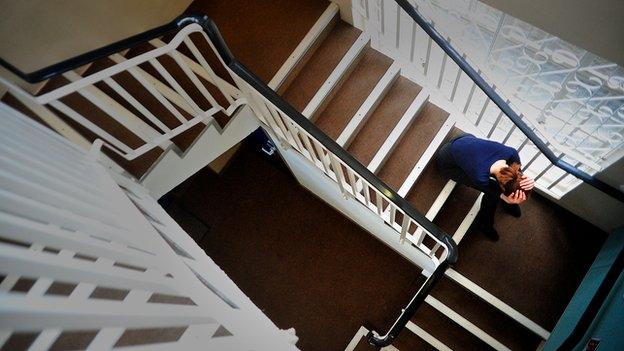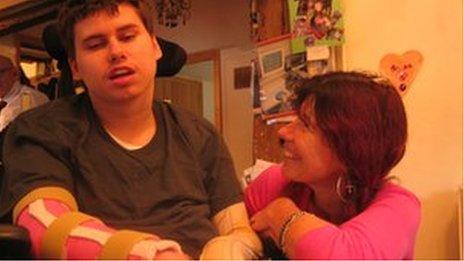Mental health patients travelling up to 79 miles for bed 'not acceptable'
- Published

Vicki Nash, head of policy and campaigns at mental health charity Mind, said if someone is sent far away for treatment they are less likely to get support for friends and family
Mental health patients having to travel as far as 79 miles (127km) for a bed is "not acceptable", the charity Mind has said.
A report looking at the 226 English clinical commissioning groups (CCGs) in October 2014 says the average journey for a patient was 13 miles (22km).
But six teams saw patients travelling on average more than 100km (62 miles).
Patients in Brighton and Great Yarmouth and Waveney faced the longest average distance, NHS statistics show.
Vicki Nash, head of policy and campaigns at mental health charity Mind, said: "When someone is in a mental health crisis, they are at their most vulnerable.
2A good support network of friends and family can play a key part in recovery, but if someone is sent far from home... friends and family may be less likely to be able to visit.
"We know that bed numbers have been dropping over the last few years, making it harder for people to get the help they need, when and where they need it. It's not acceptable."


The Health and Social Care Information Centre (HSCIC) report said the majority of people had a distance of less than 10km (6 miles), but one in 10 people (1,665) had a distance of 50km (31 miles) or more and one in 20 (778) people have to travel 100km (62 miles) or more.
The report says: "The data shows that people living in the South and East of England, particularly in CCGs covering large geographic areas, such as NHS Ipswich and East Suffolk CCG (median of 94.4km to treatment for 15 people treated) are more likely to travel further to treatment on average."
A spokesman for HealthEast, the CCG for Great Yarmouth and Waveney, said: "Beds for mental health patients are arranged by Norfolk and Suffolk NHS Foundation Trust, who will look for the closest available appropriate bed to the patient's home.
"It is important to note that patients living in Great Yarmouth and Waveney are only placed out of the area very occasionally and when appropriate.
"We will continue to work with the mental health trust to ensure people are treated as close to home as possible."
A spokesman for Ipswich and East Suffolk CCG said: "Geographically, the Ipswich and East Suffolk CCG covers a large area, and in its report, the HSCIC recognises this as a major factor affecting distances travelled by the 15 east Suffolk mental health patients.
"The priority of the CCG is to always place patients in the most appropriate care setting as close to home as possible, and this happens in the majority of cases."
A spokeswoman for Bristol CCG said it was "working in partnership with Avon and Wiltshire Mental Health Partnership NHS Trust to prevent anyone being transported out of area for their care and treatment".
- Published3 February 2015

- Published31 December 2014

- Published15 November 2014

- Published8 November 2014

- Published23 September 2014

- Published20 November 2013

- Published3 October 2013

- Published13 June 2013
